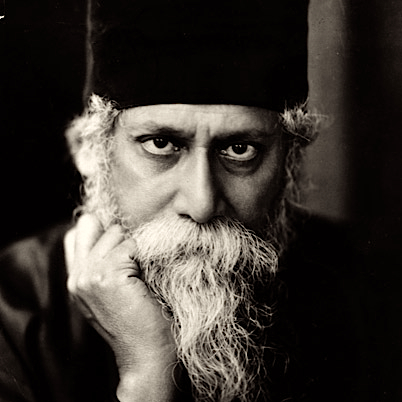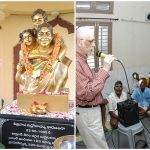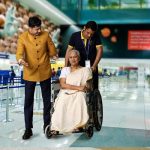 “Where the old tracks are lost, new country is revealed with its wonders,” writes Rabindranath Tagore, a Nobel award-winning renowned poet, painter, essayist, novelist, dramatist and song writer whose birthday is celebrated across the world today (May 7). He was a great traveler too, in the real and imagination. On the occasion of his birthday, we at Indian Eagle dig into how the Bard of Bengal relates travel to innocence, freedom and carefreeness in “I Travelled the Old Road”.
“Where the old tracks are lost, new country is revealed with its wonders,” writes Rabindranath Tagore, a Nobel award-winning renowned poet, painter, essayist, novelist, dramatist and song writer whose birthday is celebrated across the world today (May 7). He was a great traveler too, in the real and imagination. On the occasion of his birthday, we at Indian Eagle dig into how the Bard of Bengal relates travel to innocence, freedom and carefreeness in “I Travelled the Old Road”.
William Blake, a noted English poet, says in “Songs of Experience” that experience is the death of innocence. The more we are experienced, the more we lose innocence. Though an experience itself, travel is an exception to Blake’s view. Travel is the only learning experience that makes people as innocent, free and thoughtful as a child. Rabindranath Tagore has glorified travel as a breath of fresh air in a world beyond our known boundaries and as a relief from the killing monotony of daily life. In the poem “I Travelled the Old Road”, he presents travel as a way back to childhood when we are imaginative, innocent and free.
In the first stanza of the poem, the poet pictures the known world where daily life is bound to duties and cares. Man goes round in a circle from dawn to dusk every day. There seems no escape from the cares and worries of day-to-day life:
I travelled the old road every day, I took my fruits to the market,
my cattle to the meadows, I ferried my boat across the stream and
all the ways were well known to me.
Only the call of nature can set man free from the clutches of monotony and show the way to an unknown world where the air is eloquent with the buzz of bees and the chirp of birds, where the sky seems to be within reach, and where the mind feels as fresh as the morning. Travel is the only vehicle to transport you to this world beyond the common frontiers.
When the call of nature or an unknown world, symbolized by the longing for a fight from overwhelming monotony and the burden of toil & moil, is heard, a new avenue off the track opens up to welcome you. It feels like a fairyland where everything looks amazing. The path back to the toiling life and the care-ridden world seems to be lost. The way ahead travels to innocence, freedom and carefreeness – the natural traits of a child.
My everyday wisdom was ashamed. I went astray in the fairyland
of things. It was the best luck of my life that I lost my path that
morning, and found my eternal childhood.
We at Indian Eagle offer our earnest regards to Rabindranath Tagore, the greatest poet of India. We would like to conclude with a quote by him: “You can’t cross the sea merely by standing and staring at the water.”
READ MORE Rabindranath Tagore’s Best Quotes about Life







